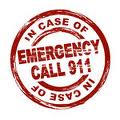 Recently, my husband and I took our daughters to the movies. Afterwards, we went for pizza at a very well-known establishment. We were seated after waiting 30 minutes in the lobby. Once we were settled and gave our order, I noticed an elderly couple sitting diagonal from us. It seemed every time I looked up, they were staring at us and neither was speaking. A small wall divided our tables so I couldn’t see the rest of their party. Eventually, a man I assumed was their son stood up, followed by three boys around the ages of 10 to 12. Two teenage girls also appeared. I then knew why the elderly couple wasn’t talking.
Recently, my husband and I took our daughters to the movies. Afterwards, we went for pizza at a very well-known establishment. We were seated after waiting 30 minutes in the lobby. Once we were settled and gave our order, I noticed an elderly couple sitting diagonal from us. It seemed every time I looked up, they were staring at us and neither was speaking. A small wall divided our tables so I couldn’t see the rest of their party. Eventually, a man I assumed was their son stood up, followed by three boys around the ages of 10 to 12. Two teenage girls also appeared. I then knew why the elderly couple wasn’t talking.
Each of the boys was holding their own tablet, and both girls had earphones attached to either a phone of other device. They were probably so involved in their own virtual world, that none of them took the time to talk to the people sitting directly in front of them. I felt sorry for this couple. They are of a generation where being “social” means going out, having fun, and making memories. The word “media” is not part of the scenario.
I was lucky enough to have known my grandparents and other relatives for a good part of my life. What I remember most are the conversations. They were filled stories that only come with a lifetime of experience. They provided lessons in history as seen from the eyes of people who had lived it. There are conversations fondly remembered because of humor and laughter. None of it recorded except in the recesses of my mind. The place, the time, and the experience lived again as if it were yesterday.
My opinion concerning electronics has been stated before in other posts. I am not against them, and understand they serve a need. But why has it become a substitute for interaction? Why does it have to go everywhere and be present at every moment? Some day in the future, these kids will not have the opportunity to talk to their grandparents. What will they remember?





